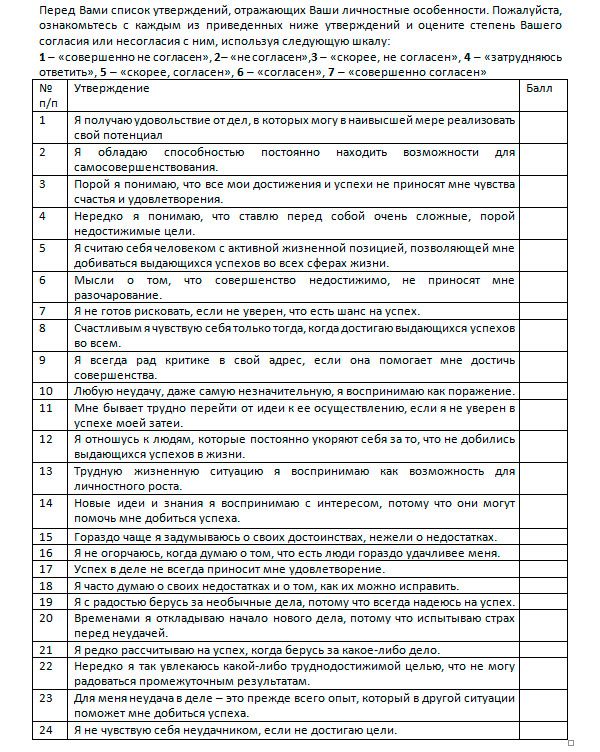Medical expert of the article
New publications
Excellent student syndrome
Last reviewed: 04.07.2025

All iLive content is medically reviewed or fact checked to ensure as much factual accuracy as possible.
We have strict sourcing guidelines and only link to reputable media sites, academic research institutions and, whenever possible, medically peer reviewed studies. Note that the numbers in parentheses ([1], [2], etc.) are clickable links to these studies.
If you feel that any of our content is inaccurate, out-of-date, or otherwise questionable, please select it and press Ctrl + Enter.
It has been noted that children who did not study hard enough at school turn out to be smarter and more successful in real life than excellent students. It would seem, what is wrong with the desire to always and in everything achieve success and be the first? Nothing, as long as this desire has acceptable limits. If it becomes an end in itself, such a person is dependent on the opinion of society, and painfully endures any criticism or lack of attention. The syndrome of an excellent student is what is called perfectionism in adult life - when a person is unable to accept the imperfection of his results in something and suffers greatly because of it.
Causes of honors syndrome
The roots of this pathology go deep into childhood, but they affect later life to no lesser extent. And if it is relatively easy to fix in a child, then the older you are, the more difficult it is to get rid of this syndrome.
Problems that can result from pathological excellent student syndrome
The excellent student syndrome is dangerous because of emotional and mental exhaustion, especially for children. The danger is that the child develops an unwillingness to suffer defeats, to accept difficulties and, of course, self-doubt. This leads to the child achieving results to the detriment of himself and his health, and since it is impossible to always win in everything, this will inevitably lead to depression.
 [ 1 ]
[ 1 ]
Symptoms of honors syndrome
The syndrome of the excellent student in a child manifests itself in the fact that he experiences any mark that differs from the highest very hard, sadly. An insufficiently well-done task becomes the cause of tragedy and the lack of desire to continue studying further.
Children with straight-A syndrome can easily sacrifice fun and socializing with friends for the sake of academic excellence.
Since the main motivation in studying for a child with the pathological syndrome of an excellent student is not knowledge, but achieving the highest grade at any cost, as well as the approval and admiration of others, such a child is characterized by dependence on the opinions of others and unstable self-esteem. When he is praised, it is greatly inflated, but if he is criticized, he gets upset and may even be offended. Another symptom is the child's morbid jealousy of praise and high grades of other children.
A child whose parents did not give them a sense of security and acceptance as they are, who were not shown that they are loved unconditionally and not for their achievements, is forced to deal with the problem of unstable self-esteem. Even as adults, it is very difficult for such people to realize that they are not friends for the sake of benefit, or that they are loved not for their compliance with the idealized standard of a spouse/father/friend/employee, but for their personal merits, which they themselves most often do not even realize.
The excellent student syndrome in adults often manifests itself in a complex of several symptoms:
- increased sense of responsibility;
- feeling of guilt for possible failure;
- excessive demands on people around you;
- inability to prioritize, trying to be successful in all areas;
- inability to lose.
Diagnostics of honors syndrome
Differential diagnostics of pathology from the desire for self-realization is necessary. Currently, the problem of normal and pathological types of the excellent student syndrome or perfectionism is covered in several comparative studies, but the lack of a psychodiagnostic technique that allows differentiating the types of perfectionism is the main obstacle to clear differential diagnostics.
Today, to determine the type of perfectionism in an adult (normal, pathological), a differential perfectionism test is used, which involves a survey of 45 and/or 24 points, where the subject determines the degree of agreement or disagreement with the proposed statements. To pass this test, you need desire and honesty in your answers. At the end, points are calculated and the result is determined.



 [ 2 ]
[ 2 ]
Who to contact?
Treatment of honors syndrome
Since there are no purely childish problems, their family is usually involved. As a rule, such a heightened attitude towards one's successes is a manifestation of the parents' attitude towards the child: "we love you only if you fully meet our expectations, and we expect you to be the best." In this way, parents try to satisfy their own vanity, perhaps to compensate for their own insufficient self-esteem. And the child is instinctively very afraid of losing parental love, and will make every effort to preserve it, since the assessment itself is less significant for the child than for adults.
If a child brings home a bad grade, it makes sense, first of all, to talk to him, discuss why he didn't get a higher grade and find out his feelings about it. If the child doesn't care, then you should think about methods of upbringing, because he is not critical of himself. If he is upset, you need to help him cope with it and believe in himself.
If you notice symptoms of emerging pathological perfectionism in your child, try to show him more love in a language he can understand:
- hug him more often, without any reason;
- pay attention, be interested in what is happening in his life;
- listen to him, find out his feelings about the things he shares with you, help with advice if he asks you for it;
- give him words of encouragement, let him understand that he is more important to you than his results, that his failures do not determine your attitude towards him;
- spend your free time together, do something together that interests him;
- Don't compare him with other children, it's better to show progress or regression with him before.
- If he spends too much time on his studies, suggest that he take a break and go for a walk with friends.
Adults who have noticed signs of this pathology in themselves are advised to sometimes deliberately break established habits and personal stereotypes, as well as get rid of the fear of failure:
- allow others to notice your mistakes from time to time, remember that you are a living person and can make mistakes;
- Be careful not to blame your mistakes on circumstances or other people. For example, if you are late for work, be honest; if you left home late, it is not the driver of the vehicle who is to blame for your lateness;
- enroll in courses that interest you but you were afraid of failing and were afraid to take;
- try to treat your mistakes with humor;
- ask a straightforward, open friend to talk to you about your mistakes. Analyze the unsuccessful moments with him, listen to his point of view;
- Experiment with clothes - if you are used to being seen only in business style, wear old worn jeans and a wrinkled sweater on a day off, or don't put on makeup and walk around the city. Allow yourself free days when you can wear comfortable clothes without thinking about the impression you make on strangers.
- delegate tasks if your position allows, and don’t be shy about asking for help or advice if you are incompetent in something;
- Remember, it is impossible to please absolutely everyone. Don't forget to praise yourself for your achievements, even the smallest ones, and forgive yourself for your mistakes. Everything can be fixed, and your health is more important.
If you find it difficult to follow these tips, the best solution would be to seek help from a good, proven specialist.
Prevention
The best way to combat the straight-A syndrome is to do everything to prevent it from occurring. If it is clear that it is beginning to manifest itself in a child, parents should first listen to themselves, to how they behave with the child and make changes to their behavior and their attitude to the child's studies and thus help the child get rid of the developing straight-A syndrome, so as not to ruin his future.
Adults need to understand that striving for perfection is important and necessary, but life is not perfect, and it is impossible to be successful in everything, you need to prioritize and achieve success in the things that are most important to you. Making mistakes, sometimes being second, third is normal. And there are always people who can do something better than you.
 [ 3 ]
[ 3 ]
Forecast
Normal, controlled syndrome of an excellent student, not turning into a crazy race for primacy in everything and manic self-improvement, gives strength to make large-scale achievements - many successful people were perfectionists. However, pathological perfectionism is different in that it is very destructive for a person's life and has negative consequences, since the awareness of one's helplessness or failure at least in some things is very painful and leads to serious harm to one's health and depression.

